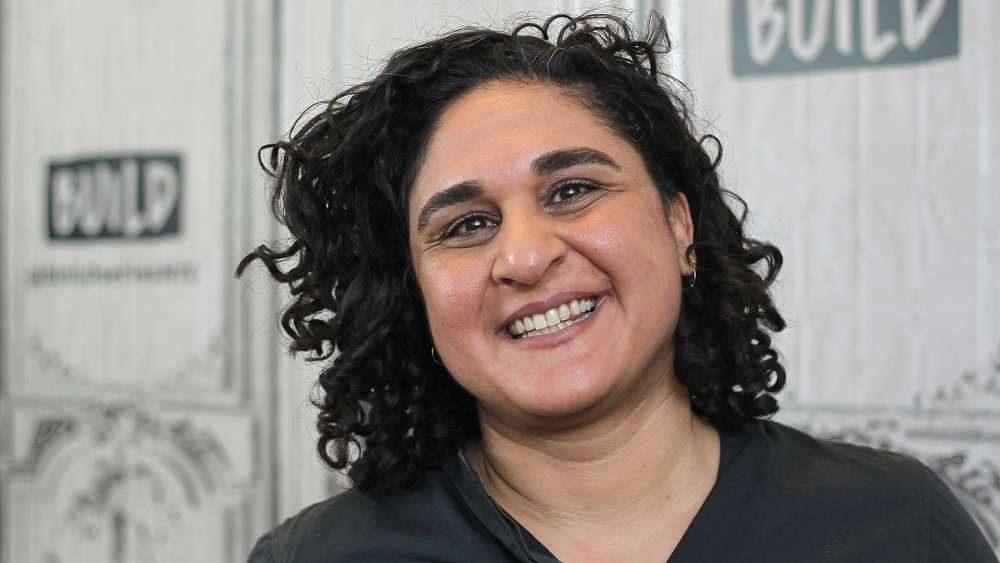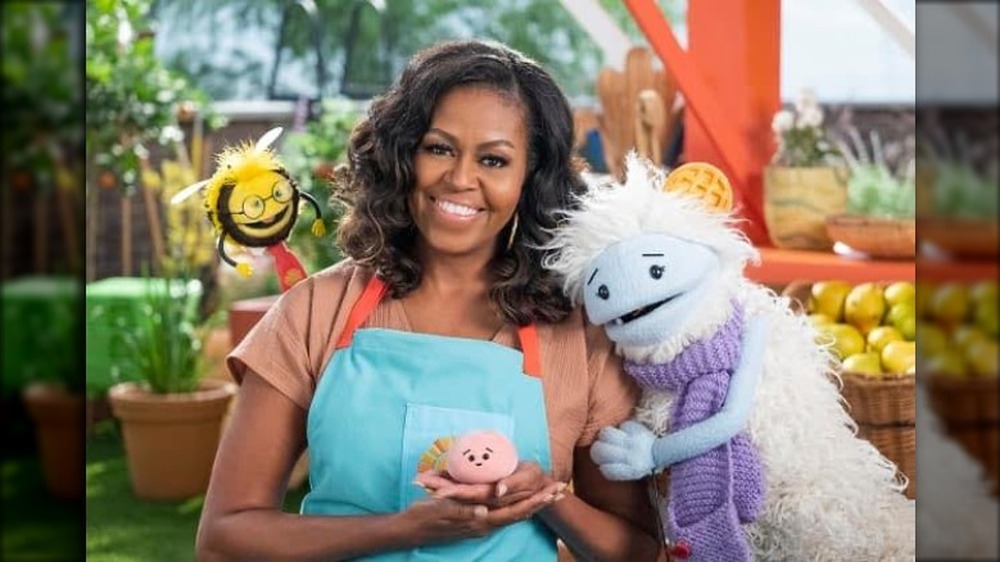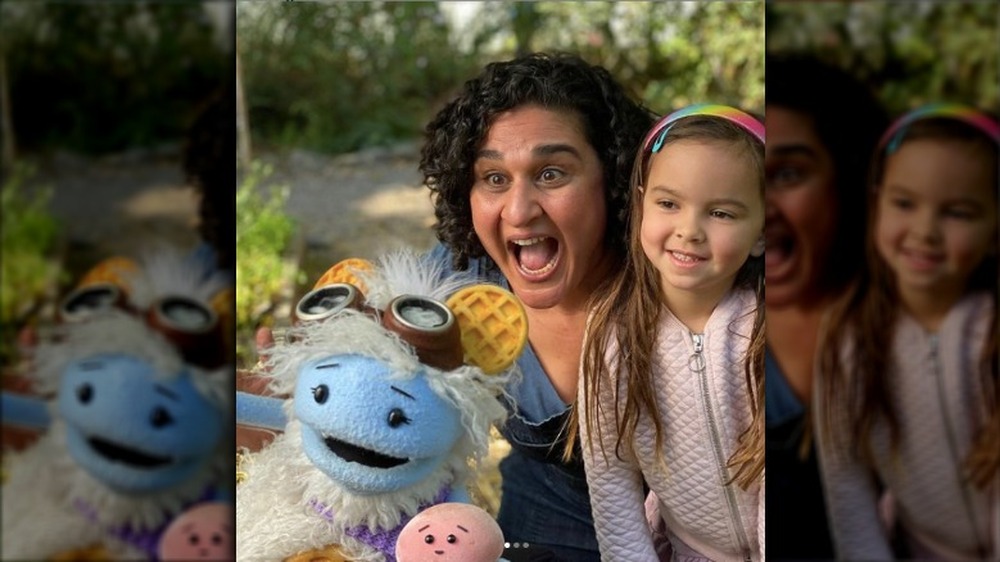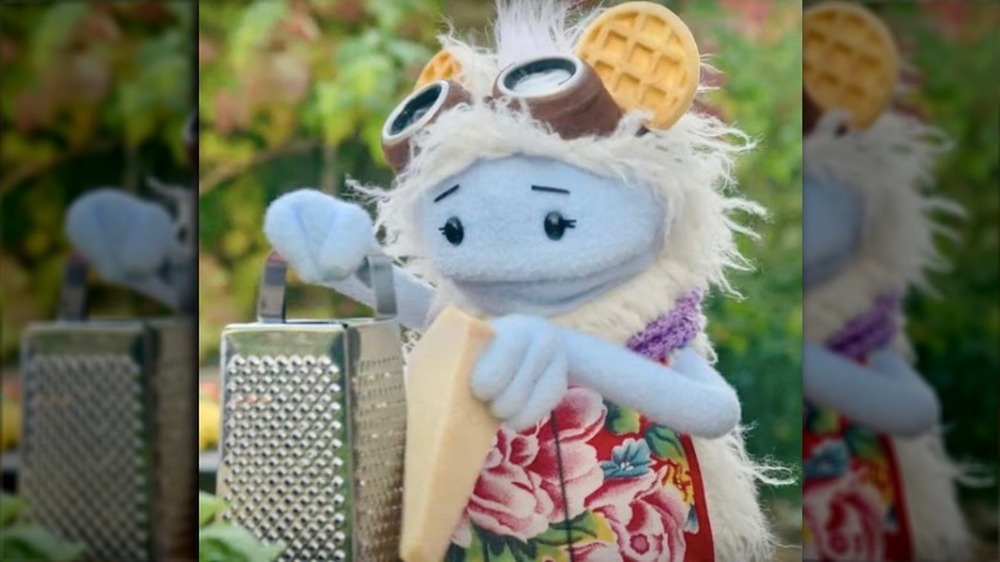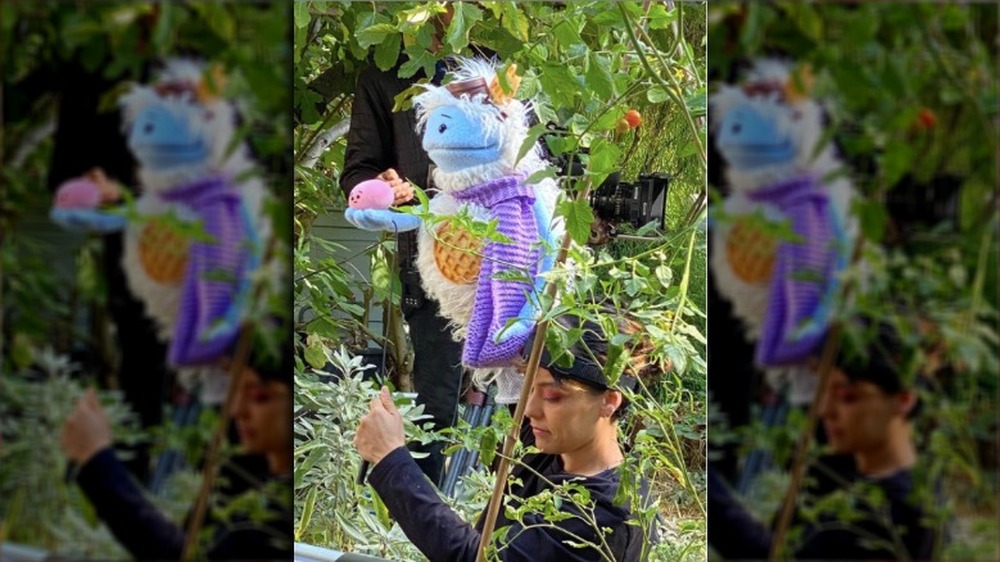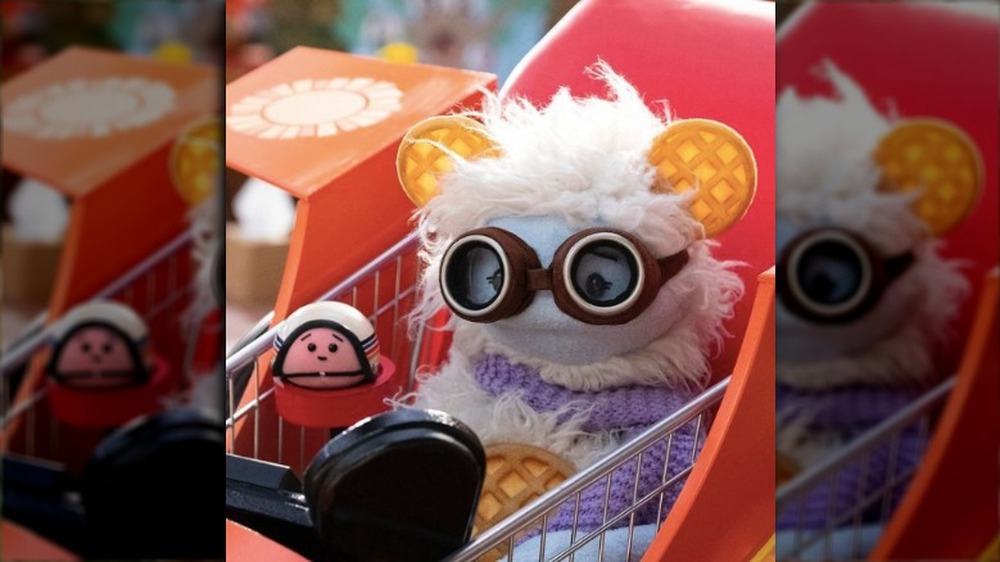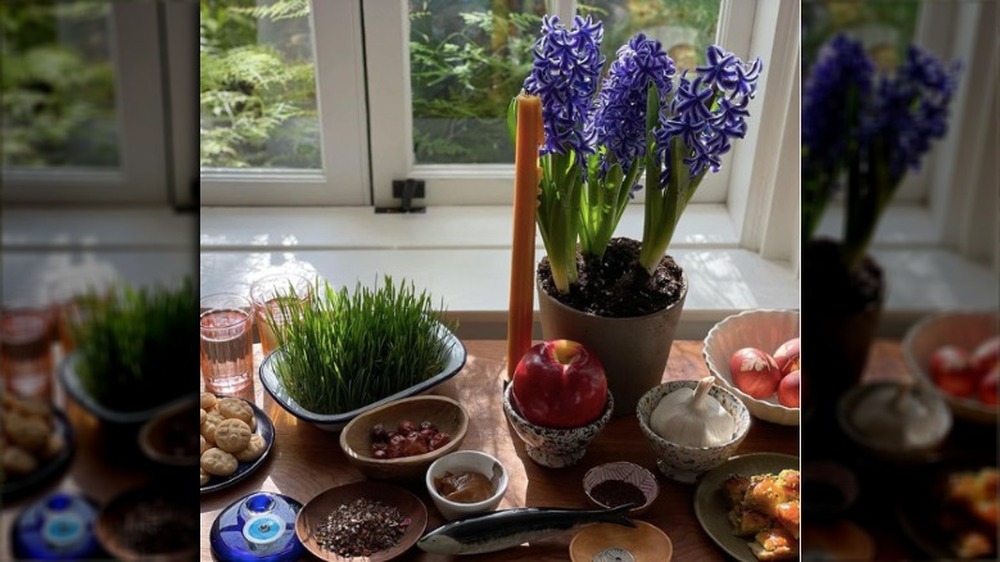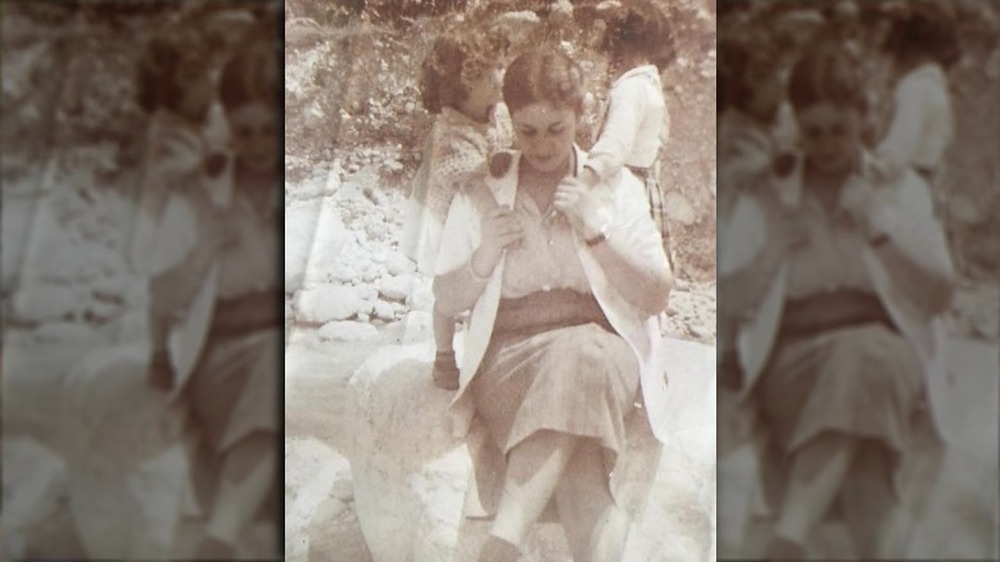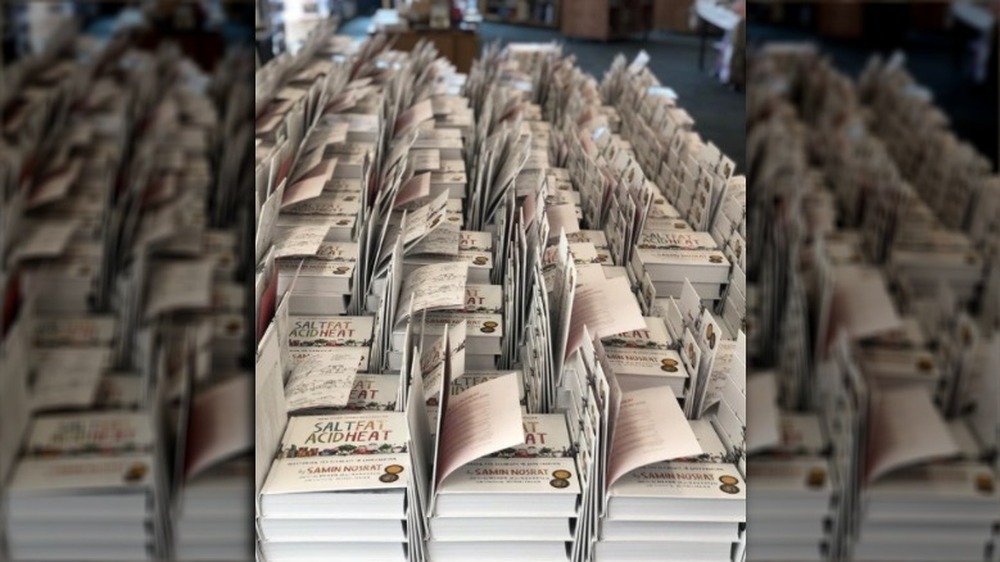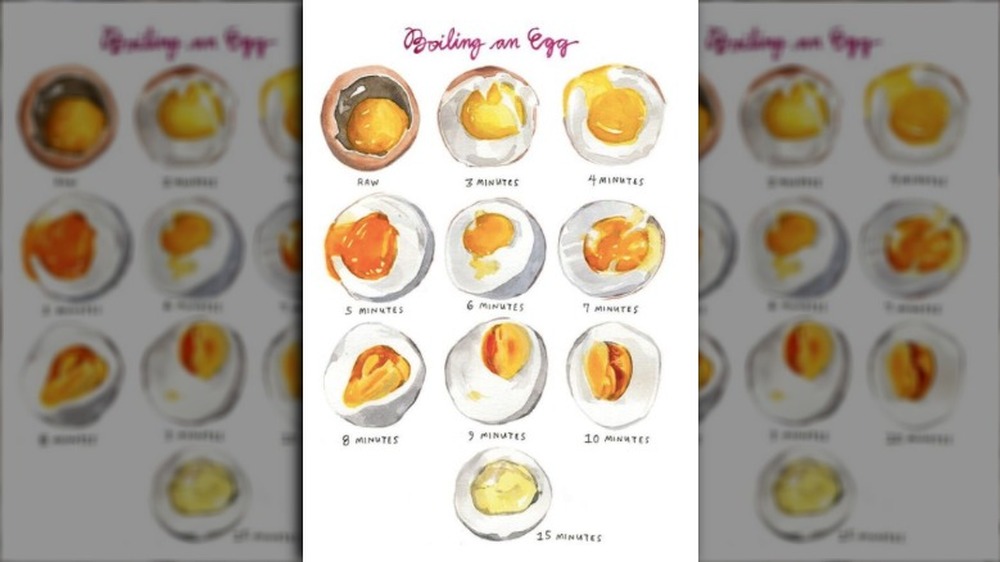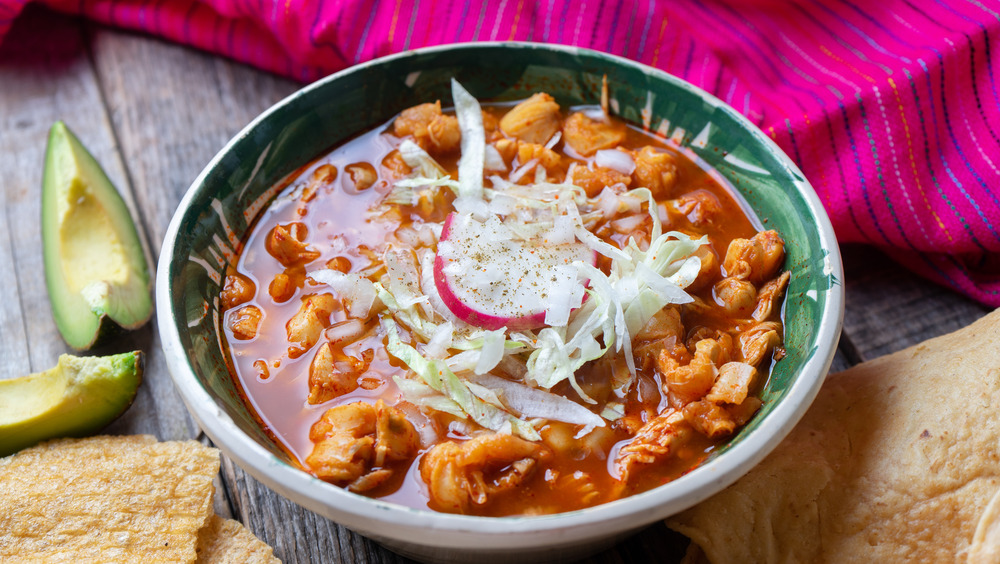Samin Nosrat Talks Waffles + Mochi And Why Cardamom Will Always Have A Special Place In Her Spice Rack - Exclusive Interview
Those who have already seen Waffles+Mochi, which premiered on March 16 on Netflix, are likely already fans. The uplifting kids show about cooking and the ingredients you can use has become an instant hit, winning over critics, and more importantly, kids and their parents. The wholesome and heart-warming show includes an ever-changing cast of celebrities including musicians, television, and film stars, and even political and humanitarian heroes like Mrs. Michelle Obama.
Fortunately, one of the earliest guests to appear on the show, Samin Nosrat, joined us prior to the show's premiere to discuss the show and her latest projects. Nosrat spoke to what makes the show so special as well as her own Netflix hit, Salt Fat Acid Heat. Throughout our time, Nosrat dropped some exciting information like behind-the-scenes moments and even some information about the new cookbook she is currently working on. While it will be a while before anyone sees the new cookbook or her in something new on Netflix, fans can at least get her thoughts on those subjects and more in the meantime.
Samin Nosrat on being a part of Waffles+Mochi
Tell us a little bit about your new project, Waffles + Mochi. What was it inspired by and what was it like filming and working with Michelle Obama?
Oh, my gosh. I can't take credit, it's definitely not my project, but it was an honor. I was just a really lucky participant in this magical universe. It was an honor to be invited. I remember the very first moment they sent the project deck, and I just felt like I had entered the world I was always meant to be involved in.
I just was like, "This is what I was always meant to participate in." This magical place for children about food, it's all about inclusivity and teaching, and it's just so heartwarming and full of joy and curiosity and belonging. It's everything that I care about. A long time ago, food stopped being about food for me, and it became about this way to connect with people and educate and learn about each other. This is just such a special thing. For me, also as a Brown kid in this world, I've carried so much feelings, so many feelings of being an outsider, and from the first moment, I was so clear that they were prioritizing making sure that everyone felt involved.
So Waffles + Mochi on its own, just as an idea for a show was the most exciting thing I'd ever seen, and then to add the most delicious cherry on top was Mrs. Obama. That part was just this incredible honor and since the moment I first was introduced to her values and her ideas and everything she stands for, especially in food and early childhood education and equity for all children, I have felt fully aligned with that. So then to finally get to be involved in a project of hers just felt like, "Hallelujah." So I don't know, honestly, every step of the way this has felt like the biggest honor of my career.
Samin Nosrat on filming the show
How do you think kids will respond to your lessons specifically, and how did Mia [Nosrat's neighbor's daughter] enjoy talking about tomatoes?
Mia's a good eater. It's funny too, because we filmed that like a year and a half ago, so she's so much older now. She was so excited, and the thing is, Mia's still so excited and every day when she comes, she lives just across the courtyard from me, and so every day she comes over and she's like, "What are you cooking today? What are we cooking today? What can we make? What can we make? What do we do?" She still remembers that day, she remembers what we made and she is ... It was just a really, it made a huge impression on her, she's so excited. She loves tomatoes, we garden together in our shared garden. So Mia's always picking the tomatoes.
She just is so curious in the kitchen and that's a really big part of her learning about food, getting to be part of the experience. To me I think, I don't have kids, but I've always loved kids and one thing I've learned as a cook is, of course, some children are picky eaters and there are a lot of reasons for that, so much of it is emotional and there are also, people have different taste buds and you can't always control that. But there are certain things we can do to involve kids in the process.
Frankly, if you're just going to boil some Brussels sprouts and put them on a plate and expect your kids to eat them, nobody wants to eat that, adults don't want to eat that, it doesn't taste good. So why would you make the stuff for the kids any blander? Make it with butter or make it with garlic, make it with salt, make it taste good, make it taste just as good as you would for yourself. Involve them in the process, let them have their hands in the garden, let them have their hands in the kitchen. Because I think when I've seen kids be involved in the process, they're a lot more invested in the result. So to me, I feel like having a new name for things, maybe it's a low blow calling it tomato candy, but they are really sweet. They're delicious little flavor explosions in your mouth. It was truly a magical day of mega, mega flavor and I think people of all ages will be really excited to try that dish.
How Samin Nosrat likes to involve guests in her kitchen
How do you like to involve people? Do you have favorite jobs that you like to give to guests when you're cooking with them, or if there are certain tasks you like to do yourself?
I definitely think a big part of it is that it's really important to involve everybody, whether or not they want to be. So I do think, for example, at Thanksgiving one thing I love doing is anticipating, if I'm going to have a big group of people, I want to take advantage of that. Especially because I live alone, and so I love things, projects that are, I call them wrapped foods, so things like dumplings or tamales, things that foods are wrapped in other foods. But those are pretty labor-intensive and involve lots of little hands, or big hands, and so if I know I'm going to be with a big group of people, I want to take advantage of those hands.
So for something I like to do on the day after Thanksgiving is make mole, turkey mole tamales with all of the leftover turkey. So I'll usually collect all of the ingredients for the tamales and then force everybody to be involved, whether or not they want to be. Then usually by the time they realize it's not that hard and it's really fun and the payoff is amazing, it becomes this amazing group activity and then you get to eat this thing that you made. People are like, "Oh, yeah. That one was mine. I recognize it in the pot." So that's really fun, but everything, everyday cooking isn't necessarily quite like that, so it's more like just recognizing what people's skill level is and comfort level and not really pushing them too far outside of that.
So there's always things like picking herbs and chopping herbs, there's always grating cheese, there's even things like setting the table and frankly, washing dishes. Like, "Can you make a nice little bowl of salt? Can you fold these napkins nicely? Can you light the candles?" All of those are part of the experience of sitting down and setting a nice scene and making it nice to have a meal together. So I think making it a sacred sensory experience and setting that tone with each other is really important. Frankly, usually, I'm losing my mind in the moment and I haven't been prepared enough to do all those things, so it's really nice for me to have help and do it.
I would say earlier in my career, I was a total control freak and kind of mean to be around, and so I would snap at you if you didn't do it just right or if you didn't set the table, fold the napkin just right or whatever. But now I'm just like, "It doesn't really matter." What matters is that we're together and if you're going to fold whatever, I want you to do it your expression of napkin folding, whatever that looks like.
Behind the scenes of Waffles+Mochi with Samin Nosrat
Did anything happen behind the scenes that you'd like to share?
What was very funny is, I don't think it made it on screen, but that parm arm. The puppeteers, I will say, the puppeteers and Michelle Zamora, who plays Waffles, is just a star. I hope that this is her chance, I hope the world opens up its arms and just recognizes how incredible she is. The song she sings in the potato episode, you just see she's just beyond amazing. There was Russ who plays Mochi, there was Michelle who plays Waffles, and then Jonathan who, in the studio set, in the grocery store set he plays Busy Bee, which oh my god, Busy Bee is amazing, when they traveled, he's the support puppeteer. He is so sassy and so funny, and so the three of them were just amazing.
The parm arm moment was amazing, and Michelle's ability to make Waffles make these extraordinary faces of exhaustion while grating this cheese was just so funny, it was so funny. Mochi is just supervising, it was very, at the same time very adult and very, very, very childish, incredibly ... Just very beautiful and simple humor. I don't know, that's the magic is they create this incredible entertainment that somehow is for everyone. I just have scrolled back into my phone and looked at the faces that she made when she was grating that cheese so many times.
What chef Samin Nosrat hopes viewers take away from Waffles+Mochi
Before we move on from Waffles + Mochi, could tell us what you hope viewers of all ages will take from the show?
I almost hope people don't even consciously notice, but there was an extraordinary amount of work and conscious decision making that went in on the part of the people making the show to put people in front of and behind the camera and stories on screen that represent the broadest possible part of humanity. That in my eyes, in my mind, to my mind, has never happened in food television certainly, and I'm not an expert in kids' television, but it's a really, really extraordinary thing.
As a member of the food world and the year that we've had, after the year that we've had, this is a really healing and special thing. So when I think about the kids who are going to watch this and see themselves reflected on screen and see kimchi be celebrated, a food that I know I have a lot of friends who were made fun of for having in their lunchboxes or smelling like, and they're going to see people who look like them. I was watching the show with some friends and their kids a couple weeks ago, and I wasn't even thinking about it, but my friend's kid, one of her sons is hearing impaired, and we were watching the first episode and Waffles + Mochi go to Mozzeria, which is run by and entirely staffed by deaf cooks. Afterward, my friend was like, she turned to me and she said, "That's amazing for him to see that on-screen. It's just the most incredible thing."
It was just completely just matter of fact, or I was watching the episode where Waffles + Mochi get in the Magicart to go meet Preeti and Magicart says, "We're going to meet Preeti Mistry, they ..." It's like no big deal, they're just using "they" pronoun for Preeti, just no big deal. Those are all really careful choices. I really hope that this sets a new standard for food television, for children's television, for all television, for storytelling. To me, this is the most extraordinary part of the show. It's the most powerful thing it does, it's changed something in me to see that it's possible to be part of something like this. What was amazing was to see the entire team from the very beginning, from top to bottom, cared about this.
It wasn't this thing that anybody had to fight for, it was just part of it, so that it freed all of our creative energy to just be the most creative people we could possibly be. So I don't actually think it will be lost on people, I just hope that it seeps in and makes people feel really good.
Samin Nosrat speaks to childhood memories in the kitchen
So I wanted to switch gears a little bit and talk to you about your childhood and ask you if there's a favorite food memory that you'd like to share.
God, I had so many. My mom is a great cook and food was such an important part of my childhood. I'm trying to remember one specific thing. Actually, probably at this moment, what's popping into my head is not actually with my mom, it's with my aunt and I think it's because we're coming up on Persian New Year, which is on the first day of spring. My aunt, during my childhood, my aunts and my uncles all variously lived with us at different points of my childhood, and so my aunt was really talented at making baklava, which for Persian New Year we have this very special table, it's almost like an altar set up with seven ceremonial items that start with this Persian letter S, and then also to celebrate the new year, you have a bunch of sweets to sweeten the holiday and begin the new year on a sweet note.
Traditionally, one of the sweets is baklava. Persian baklava is not made with honey, it's made with simple syrup and there's lots of cardamom and pistachios, and my aunt made the most delicious baklava. So I just remember watching her make it and soak the baklava with this incredibly rich simple syrup that was so fragrant with cardamom and cutting the squares into diamonds, or excuse me, cutting the pieces of baklava into diamonds and just impatiently waiting for our chance to eat a piece, and just how incredibly sweet and soaked with this syrup it would be.
Usually, our grandmother or another family member coming from Iran would bring all of these nuts from different nut shops for us, and so all the pistachios were from Iran. So another very clear memory was the moment after we'd pick somebody up from the airport, I lived in San Diego, I grew up in San Diego, but we would drive to LA to pick up people at LAX and then we would come all the way home, it was this whole day thing.
Chef Samin Nosrat's favorite childhood treat
Then we're like, "What did you bring us? What did you bring us?" They would open up these suitcases, which were usually like decades-old and smelled really musty, and then we just couldn't wait to see what they brought us and all the different nuts and saffron and fruits and dried fruits. My grandma used to make this Persian version of dried fruit leather, like a Fruit Roll-Up, except Iranians have an incredibly sour palate, whereas American palates for snacks is very sweet, the Persian palate for snacks is very sour. So our dried plum leather is so sour it makes your cheeks cramp. So my grandma would make this super sour plum leather and we would be like, "Did she bring any? Did she bring any?" We'd wait for her to open up her suitcase.
That would be where the pistachios for the baklava would be, and so it was just this thing where all of these family steps were involved in this one dish that made its appearance on our New Year's table. So that smell, to me cardamom, I definitely overuse cardamom in my cooking, I would say it's probably my most used spice, definitely my most used sweet spice. I think probably my next cookbook, people are going to be like, "What is wrong with this lady? She puts cardamom in everything." But it's super nostalgic, it's super emotional for me, and it really is connected to that baklava, to my childhood.
Author Samin Nosrat is working on a new cookbook
Speaking of your new cookbook, I have to ask then, when will we maybe see ...
Oh, Lord. I have no idea. I'm very slowly working on it now.
Can you tell us the theme or any details?
It's called What To Cook, and the idea, if you think of Salt Fat Acid Heat as translating for home cooks, the idea of how professional cooks understand and think about how to cook and navigate themselves or situate themselves in a kitchen around these four elements, then What To Cook will translate for home cooks how professional cooks navigate any kitchen situation. Any cooking scenario using also four variables, which are time, ingredients, resources, and preferences. So I think most home cooks don't really understand that there are an invisible set of constraints that you face every time you set out to cook and that it's always changing every single day, even if your kitchen is the same.
Then if your kitchen is changing or your ingredients are changing or the time you have or the people you're feeding, if any of those things change, your constraints change. I thought of this idea a few years ago, and I sold the book and was supposed to start writing the book a couple years ago, but things have changed and the pandemic happened and stuff, and I'm a slow writer. But what's interesting, is I've been thinking a lot about it obviously over the last couple years, and I do think the pandemic has given the public a much more intimate relationship to constraints in the kitchen. I think people will have a fluency with the topics in a way that they probably wouldn't have had before. But it's coming, just very slowly. I promise it won't be another 17 years.
Samin Nosrat speaks to the elements of Salt Fat Acid and Heat
Could you maybe tell us a little bit more about Salt Fat Acid Heat and maybe some of the misconceptions or biggest mistakes people make with those four elements?
I think for most people who just are maybe beginning cooks or have not, let's say, spent a ton of time in the kitchen or have not strayed from the same recipes that they've always been comfortable with and maybe thought philosophically about what's happening in the kitchen, they probably are afraid to use salt or fat or acid in a way ... beyond what is dictated to them in a recipe.
I think the first thing to do is get acquainted with all the different forms of these ingredients, and the fact that they come in so many forms. One way to do that is just to be a more thoughtful taster and start paying attention to the fact that almost any food that you love is going to be really balanced in salt and fat and acid, because we as humans have evolved to love those tastes. So actually, Waffles + Mochi has really great animations to illustrate this point.
If you love pepperoni pizza and you think about it, it's because pepperoni and cheese are salty and fatty and actually a little bit acidic, and so is the tomato sauce, it's acidic. So if it was just the bread, it would just be plain, it would just be probably a little bit salty and maybe a little bit oily, if it had some olive oil on it, but it really needs that acid. Then the heat, if the heat's not right, then the bread's not going to be browned or the bottom of the pizza will be soggy, it won't be crunchy. So those four elements are what make a great pizza.
When it comes to salt, I do think a lot of people need to get comfortable using a little bit more, but even more than that, it's adding it earlier in your cooking. Certainly when cooking with meat, adding it earlier is almost always better. It's not even necessarily that you're adding more salt, you're just giving the food time to absorb the salt, because otherwise, what you're going to be doing is adding a bunch of salt at the table and it just is sitting on top, and it's not going to taste as good.
For fat, a big thing that people don't always understand at the beginning is that fat has flavor, fat itself has flavor and will take the course of your dish to a different cuisine. So butter, if you start a dish with butter but you're trying to make a dish from a cuisine that doesn't traditionally use butter, it's never going to taste right. So if you're trying to make Japanese food, something Japanese-inspired, probably don't use butter because they do not cook with butter there. That will make a huge difference and get you much closer to the taste of the cooking you're after.
Acid, I think most people don't use enough acid. That's a big one, and I think that's a mind-blowing one. Sometimes just putting a tiny bit of acid will just create balance, and it's not even that you want to have a mouth-puckering moment, it's just creating some secret contrast so that the other flavors have something to bounce off of. So I think getting your pantry stocked with multiple vinegars is a great thing. I always have a lemon and a lime in my kitchen. Just making sure I have, just like the different fats of the world, I have the different acids of the world in my kitchen and that helps a lot.
Then heat, heat is like you learn as you go, but I think a big, big, thing for me was realizing it doesn't matter so much the source of heat as it does the level of heat. So that if I am trying to brown something, it doesn't matter if that's happening on the stove or in the oven. There are places where you simply can't brown. A microwave will never really create satisfying browning.
Samin Nosrat discusses her favorite grocery stores
Great. I have a few more quick-hit questions for you. What's your favorite grocery store?
My favorite grocery store, it's changed a lot, things have changed so much in the last year and a half, but it really depends on the situation, to be totally honest. One of my favorite things to do is, whenever I travel, my favorite thing to do is to go to a grocery store wherever I go, because I'm always like, "What do people here have access to? What do people here eat?" Especially in a new country, I'm like, "What are the interesting things here that they have that I don't get to have?" So I love any grocery store basically.
But where I've been shopping mostly this past year is there's a local family run grocery maybe less than a mile from me, and they pretty much have everything. What's amazing, they even somehow, I don't even understand how, and it wasn't even me, but somebody in the neighborhood asked them to track down and stock the soy sauce from my show, so they sell the soy sauce from Japan from my show. It's the only store I know that sells the soy sauce from my show, which is so wild. So they're the kind of store where people still have a tab. So them I really love, and it's like a small family-run place that I love, but it has that corner store feel, and it's been a great way to avoid the huge stores.
I also have to say, as a cook, I love going to Berkeley Bowl, which is our big grocery store here in Berkeley and means I can have a one-stop-shop if I need to do all the shopping for a big recipe test or a big event or something. But I also at this point can make it work wherever I am, with whatever I've got.
Chef Samin Nosrat is loving this meal at the moment
What's your favorite dish or meal at the moment?
There is a pozole that is so delicious and I love it so very much and it's a pandemic discovery to me, because it's some cooks I think who got laid off early in the pandemic and they started a little pop-up and they deliver. I always say Mexican food, people are like, "If you could only eat one cuisine?" Which I always feel like is a cheating answer, because Mexico's a huge country with like 90-million cuisines inside of it, but I would always choose any food where there's just one million condiments and the pozole is that thing where you're just garnishing it with so many things.
But this pozole, it's a pozole rojo and they delivered it, I first ordered it on Christmas Eve and it came and it was just the most flavorful thing I have ever eaten. It was so good. I think it's from Michoacan, and it's just the most extraordinary soup I had ever had. I eat a lot of pozole, every time I go to Mexico I have my specific spots that I go to, and this was just beyond. It was so delicious and so shout-out to Dos Raices, it's so delicious. I think that's probably one of my favorite meals, yeah.
You can watch Samin Nosrat in both Waffles+Mochi and Salt Fat Acid Heat which are streaming on Netflix.
